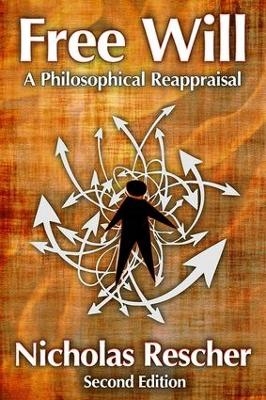
Free Will
A Philosophical Reappraisal
Seiten
2015
Routledge (Verlag)
978-1-4128-5593-8 (ISBN)
Routledge (Verlag)
978-1-4128-5593-8 (ISBN)
This second edition of Free Will presents a complete treatment of the history of the debate over whether humans have free will. It analyses the conditions under which actions must be characterized as unfree, and explores whether recent findings in brain physiology counter-indicate free will. Nicholas Rescher leads the reader through a conceptual web of distinctions that, taken together, provide a satisfying contribution to philosophical thought on free will.
To determine if humans have free will, Rescher first examines exactly what free will is and how it should function. He examines the role of nature, nurture, and free choice, and he concludes that it is possible to validate the compatibility between freedom of the will and a certain special mode of determinism. Rescher sharpens his highly conceptual assessment by making distinctions between productive (or metaphysical) and moral (or motivational) freedom. He also distinguishes between free decision and free action, and motivational and causal determination of choices. In addition, he considers the distinction between durational events and the instantaneous outcomes that mark their commencements and completions, as well as between pre-determination and determination based on precedence.
New in paperback and completely revised, this edition of Free Will represents a leading contemporary philosopher in top form.
To determine if humans have free will, Rescher first examines exactly what free will is and how it should function. He examines the role of nature, nurture, and free choice, and he concludes that it is possible to validate the compatibility between freedom of the will and a certain special mode of determinism. Rescher sharpens his highly conceptual assessment by making distinctions between productive (or metaphysical) and moral (or motivational) freedom. He also distinguishes between free decision and free action, and motivational and causal determination of choices. In addition, he considers the distinction between durational events and the instantaneous outcomes that mark their commencements and completions, as well as between pre-determination and determination based on precedence.
New in paperback and completely revised, this edition of Free Will represents a leading contemporary philosopher in top form.
Nicholas Rescher, distinguished university professor of philosophy at the University of Pittsburgh, USA, is currently chairman of the Center for Philosophy of Science.
Preface
Introduction Historical and Textual Perspectives
1 The Nature of Free Will
2 Modes of Freedom
3 Ramifications of Freedom
4 Some Fallacies Regarding Free Will
5 Free Will as Outside Causality But Compatible With it
6 Free Will Excludes Causal Predetermination But Not Motivational Precedence Determination
7 Freedom and Motivation
8 Compatibilism Regained: What Free Will Excludes is Not Agent Determination But Agent-Bypassing Nature Determination
9 Mind-Matter Coordination
10 Does Free Will Exist? Deliberations Pro and Con
References
Index
| Verlagsort | New York |
|---|---|
| Sprache | englisch |
| Maße | 152 x 229 mm |
| Gewicht | 294 g |
| Themenwelt | Literatur ► Märchen / Sagen |
| Geisteswissenschaften ► Philosophie ► Ethik | |
| Geisteswissenschaften ► Philosophie ► Logik | |
| ISBN-10 | 1-4128-5593-4 / 1412855934 |
| ISBN-13 | 978-1-4128-5593-8 / 9781412855938 |
| Zustand | Neuware |
| Haben Sie eine Frage zum Produkt? |
Mehr entdecken
aus dem Bereich
aus dem Bereich
unsere kollektive Verantwortung
Buch | Hardcover (2023)
wbg Theiss in Wissenschaftliche Buchgesellschaft (WBG) (Verlag)
35,00 €


